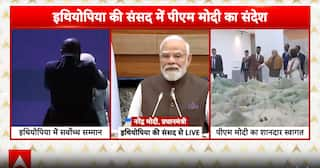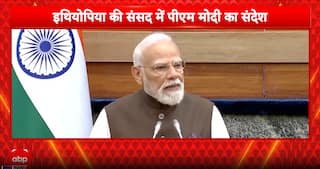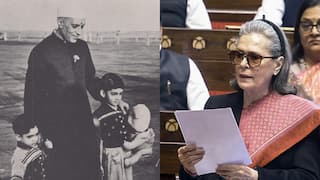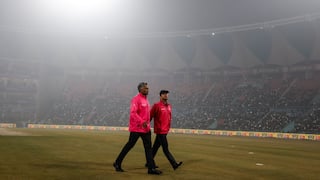MNF Victory In Council Polls Shows It's Quick Recovery After Lok Sabha Disaster In Mizoram | OPINION

This week, the main opposition party, the Mizo National Front (MNF), gained a major boost after it successfully took control of the Sinlung Hills Council (SHC) with the help of its ally, the Hmar People’s Convention (Reformation) or HPC(R). Out of the 12 seats, the Zoramthanga-led MNF contested 10 and secured 5, while its ally, HPC(R), won both seats it contested. The ruling Zoram People’s Movement (ZPM) managed to secure 4 seats, while the other opposition party, the Congress, won a single seat. The SHC covers Hmar-dominated areas of the state, encompassing the three assembly constituencies of Chalfilh, Serlui, and Tuivawl.
In the previous council election, the MNF, in alliance with the Hmar People's Convention (HPC), won 10 out of the 12 seats, with each party securing 5 seats. The remaining 2 seats went to independents. However, control of the council later shifted to the ruling ZPM.
This result can be seen as a morale boost for the MNF, which lost power to the ZPM almost a year ago. Although the MNF, despite losing power, retained its base in the Hmar-dominated areas by holding onto the Tuivawl and Serlui seats (though it lost Chalfilh to the ZPM), the scenario shifted during the Lok Sabha polls, where the ZPM led in all three assembly constituencies. This council election was especially challenging for the MNF, as the ZPM, as the ruling party, held an advantage. Despite these challenges, the MNF-HPC(R)’s council victory marks a significant achievement for the main opposition party.
The results indicate that the MNF has regained some lost ground after its poor performance in the Lok Sabha polls. This victory is expected to energize party cadres and demonstrate that despite being out of power, the MNF remains a formidable force that Chief Minister Lalduhoma’s ZPM cannot underestimate.
Did ZPM's Alliance with HPC Prove Costly?
In this election, the ruling ZPM entered the council polls allied with HPC, which had previously won 5 seats in the last council elections. The ZPM contested 8 seats, leaving 4 for HPC. While the ZPM managed to win 4 seats, the HPC failed to secure any.
Although the ZPM, as the ruling party, held an advantage in the council polls, it was unable to fully capitalize on this. Still, the ZPM’s performance wasn’t poor; rather, it was their ally HPC's poor showing that weakened their overall results. In contrast, the MNF’s ally, HPC(R), won both seats it contested, while the HPC won none.
Notably, even with its alliance with HPC, the ZPM managed to win only one of the three Hmar-dominated assembly constituencies in last year’s state assembly elections. The Sinlung Hills Council polls reflect that a substantial portion of the Hmar population remains loyal to the opposition MNF, with the ZPM yet to establish dominance in Hmar-majority areas.
Why Are Biren Singh, State Congress United In Opposing Lalduhoma’s Call for Zo Unity?
This week, a two-month-old statement by Mizoram Chief Minister Lalduhoma, advocating for the unity of Zo tribes across India, Myanmar, and Bangladesh, resurfaced and went viral, sparking controversy — albeit somewhat exaggerated. The statement, given on September 4 during a visit to the United States, has had ripple effects in the neighbouring state of Manipur, where Chief Minister N Biren Singh and the Manipur Congress Committee both slammed Lalduhoma’s remarks.
It is rare for Biren Singh, who has been under intense opposition scrutiny over his failure to restore peace in the conflict-ridden state, and the Congress to agree on an issue. Yet Lalduhoma’s call for Zo tribal unity has brought them to common ground. The reason lies in the implications of Zo unity: under the Indian Constitution, this could suggest the separation of Kuki-Zomi-dominated hill areas from Manipur. The Kuki-Zomi tribes, currently embroiled in an ethnic conflict with the valley-dominant Meiteis, fall under the broad "Zo" identity.
Since the outbreak of ethnic violence, the Kuki-Zomis have been demanding separate administration, potentially as a union territory with a legislature for their hill-dominated areas. This demand has faced strong opposition from the Meiteis, who see it as a threat to Manipur's territorial integrity. Biren Singh’s opposition to Zo unity is therefore unsurprising, as he is widely disliked by the Kuki-Zomis due to perceived biases toward his Meitei community. The Congress, meanwhile, cannot afford to alienate Meitei voters, whose support is critical for its chances in the 2027 state elections, following its recent success in winning both Lok Sabha seats. Another important factor is that the hill-dwelling Nagas oppose the Zo tribes’ demand for separate administration, as some territories claimed by the Kuki-Zomis overlap with Naga interests. This context explains why the Congress, despite strong support from Kuki-Zomis in the Lok Sabha polls, has also opposed Lalduhoma's call for Zo unity.
The author is a political commentator.
[Disclaimer: The opinions, beliefs, and views expressed by the various authors and forum participants on this website are personal and do not reflect the opinions, beliefs, and views of ABP Network Pvt. Ltd.]


























